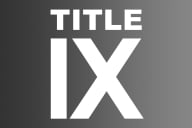You have /5 articles left.
Sign up for a free account or log in.

Mustafa Kaya/istock/getty images plus
Another tenure-track academic job application period is close to its deadline. Many early-career researchers, including graduate students and postdoctoral fellows, must have spent much time and effort finding and applying for faculty jobs while also managing their professional and personal responsibilities. If you are one of them, kudos to you! Now, you may wonder what and how to better prepare for an academic interview as a fierce interview season gets underway.
In my experience working with graduate students from different fields and multiple institutions, I’ve found that the level of job-search support they receive from their advisers and others in their department varies widely. Thus, graduate students often rely on trial-and-error learning from their past interviews as a way to discover the hidden curriculum of an academic job search. But while that’s one method many of us use to gain knowledge and skills, it would be wise not to use your precious interview opportunities as your experiment when tenure-track faculty jobs are getting increasingly rare, especially with COVID-19.
A growing number of institutions spend more time on preliminary interviews, or what are often called screening interviews, as they receive a huge number of applications. While it varies by institution or department, a search committee usually invites anywhere from 15 to 40 applicants for screening interviews before narrowing down to the top three or five candidates for an on-campus interview. Considering the competitiveness and importance of the screening interviews, I would like to share some insights that I found effective for helping candidates better prepare for this stage of the faculty hiring process. This essay focuses on screening interviews that occur via phone or video calls, so please check out this piece by a junior professor, too, for advice on how to best handle a screening interview in person at a conference.
What to Expect
Most search committees make a list of candidates for screening interviews, or a short list. Each screening interview that happens via phone or videoconference (Zoom, Skype, Microsoft Teams, Hangout and the like) generally lasts 30 minutes or less. Except for follow-up questions, a search committee usually asks each candidates the same set of interview questions. In that way, the search committee can evaluate and compare candidates’ responses to come down to the top three or five.
Although specific interview questions you will receive as a candidate might differ for each screening interview, search committees often have the same core recruitment goal: finding a future colleague 1) whom they want to spend time with every day for at least six years, 2) who can be a representative of their department/fields and 3) who fits the pressing needs of the position, as described in an advertised job description.
How to Prepare
A good starting point for your interview preparation would be working to understanding general academic market trends and specific disciplinary expectations for junior faculty members through informational interviews. But the best way to show your fit during the interview is to be prepared to talk about your scholarship and its strong alignment with a prospective department or institution.
The emphasis on scholarship areas among the questions you will be asked during the interview may vary. For example, research-intensive universities often focus more on your research than teaching. However, you will probably receive questions related to all or some aspects of your research, teaching/advising and service.
Review the sample questions below. Prepare your talking points with a specific example, where possible, that can be covered within three to four minutes and practice your answers:
No. 1: Research
- Describe your current research (or your dissertation).
- What is the broader significance of your research?
- How do you see your research fitting in with the department?
- Tell me about your research plans for the next two/five/10 years?
No. 2: Teaching/Advising
- Tell us about your teaching philosophy.
- Describe a course you have taught in the past and how you measure the students’ learning.
- What classes will you be able to teach with little preparation?
- What is your experience working with diverse student populations?
No. 3: Service
- What institutional issues particularly interest you?
- How will you contribute to the community at our department and institution?
Once you have clear talking points about your scholarship, conduct research on your prospective departments and institutions by collecting data on:
- Faculty profiles to sense major subfields and potential gaps that you might be able to help address;
- Department course offerings and formats—whether in person, hybrid or online;
- Departmental and institutional missions and visions;
- Affiliated departments or campus units (for possible future collaborations); and
- Student populations and characteristics.
This information will not only help you understand why the employer indicated specific fields of interest or other requirements on the job description, if any. It can also enable you to tweak your responses to meet the institution’s distinct culture and needs to demonstrate your strong interests and fit.
Last, don’t forget to prepare to answer “Do you have any questions for us?” At the end of most screening interviews, a search committee may spend about five minutes to check if you have any questions. The correct answer to that question is always yes! If not, you may give the search committee an impression that you are not that into their department or the position.
Prepare two or three open-ended questions in advance to demonstrate your strong interest in the opportunity and your prior research on the department/institution. Also, if possible, ask at least one question that connects with what you have learned during the interview. (“I remember Dr. A mentioned XXX. Can I follow up on that, especially regarding XYZ?”) Strategic use of these five minutes will help you not only convey your strong interests to the committee but also collect additional insights to assess whether the position is a good career fit for you.
While the job search can be exciting, it can also create a great deal of stress, even for the most confident and well-prepared person. It can be even more challenging if you are doing it all alone. Kathleen Grogan, now a faculty member at the University of Cincinnati, has said that applying for a faculty job requires the equivalent amount of time as a four-month, full-time job. It can be a mentally and physically exhausting process.
Don’t go through it alone. If talking to your adviser or a peer isn’t an option for you, reach out to career advisers or counselors at your institution to seek technical advice, such as interview prep, as well as much-needed emotional support for a healthy job search.








